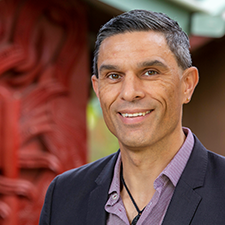Climate action, Indigenous rights and Māori health equity

The health impacts of climate change will be disproportionately borne by the most disadvantaged populations including Indigenous peoples. Responses to climate change at national and global levels also threaten to adversely affect Indigenous peoples, adding future insult to historical and contemporary injury. Yet climate action is also accompanied by considerable opportunities to advance Indigenous rights and reduce health inequities.
This thesis seeks to inform approaches to climate action in Aotearoa/New Zealand that can improve Māori health, contribute to health equity and uphold Indigenous rights. The research is underpinned by Kaupapa Māori Research principles and centralises the knowledges, worldviews and realities of Māori as Indigenous peoples of Aotearoa New Zealand.
Project objectives:
- To develop a Kaupapa Māori conceptualisation of the relationships between climate change, climate action and Indigenous health
- To analyse the implications of climate change and climate policy for Māori from a right-to-health perspective
- To examine the evidence relating to climate change mitigation policies and co-impacts on Indigenous health and health equity
- To critically analyse current and/or proposed New Zealand government climate policy with respect to Māori health and wellbeing
- To identify and prioritise actions to advance Māori health and equity in the context of climate change policy
Outcomes:
This thesis will contribute to the development of Kaupapa Māori health impact assessment theory and methods, thereby adding to the methodological tools for Kaupapa Māori public health assessment. The outputs of the research will contribute directly to climate policy, providing an analysis of current/proposed policies and informing an Indigenous-centred approach to addressing climate change.
